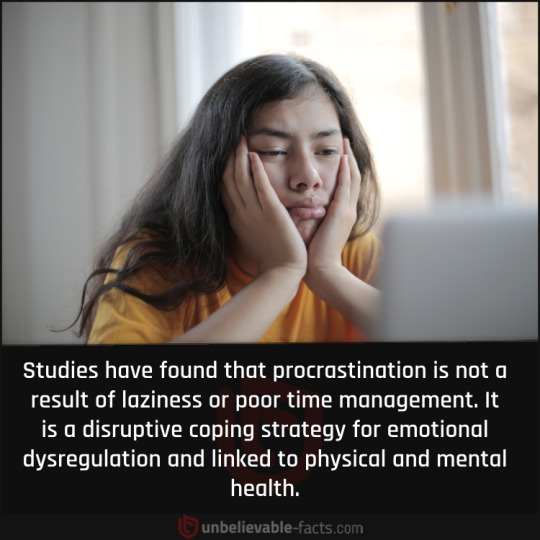#human behaviour
Text


andafterthat
1K notes
·
View notes
Text
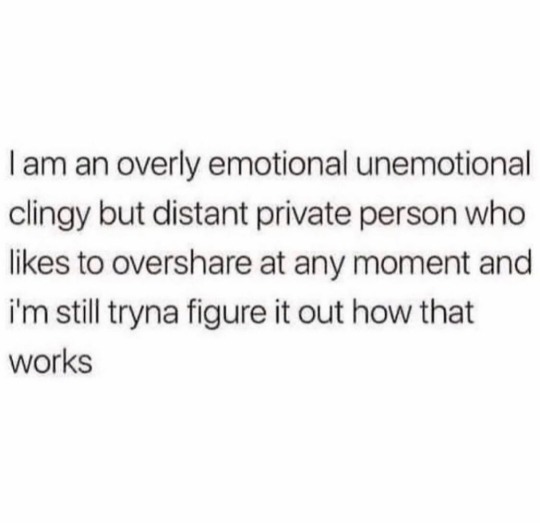
#me af#words#quotes#facts#lol#funny#emotions#human behaviour#humor#haha#meme#memes#humour#personal#relatable
206 notes
·
View notes
Text
Human: we have pack bonded!
Alien: we’ve known each other for a week?
Human: pack bond :)
Alien: I mean I suppose, I’m glad we have become-
Human: if you ever need me to kill someone for you, just give me a call ;)
Alien: I.. Pardon?!
#human behaviour#humans are space orcs#humans are weird#humans are deathworlders#humans are space australians#aliencore#alien and human#humans and aliens#pack bonding
2K notes
·
View notes
Text
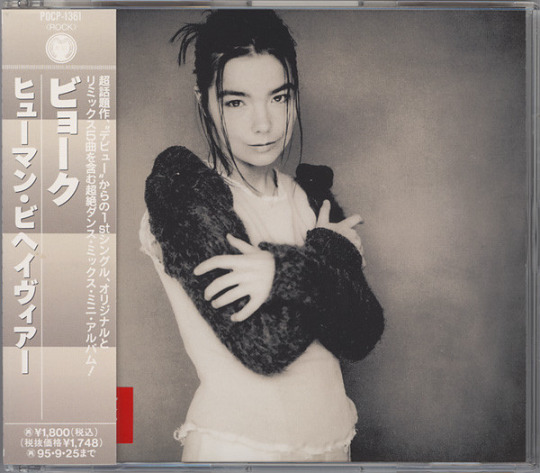

Björk: Human Behaviour (1993)
1K notes
·
View notes
Text

We humans can be so fucked up sometimes.
.
.
#fucked up#human behaviour#looking for love#in all the wrong places#soulinkpoetry#poetry#thoughts#she writes#feelings#poets on tumblr#that’s life#poets corner#writers and poets
126 notes
·
View notes
Text
Character Analysis of Johan Liebert - Monster, Naoki Urasawa (2004)
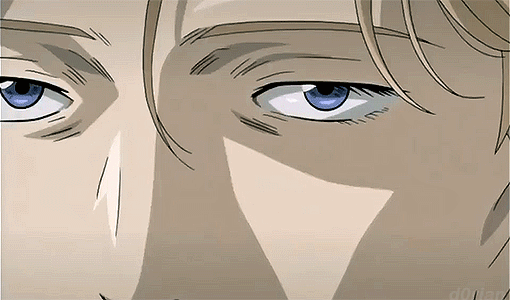
In my opinion, Johan represents Jung's concept of the shadow, which is why both Tenma and Nina couldn't kill him in the end. Despite tirelessly, and relentlessly going after him. If they did end up doing so, they would be destroying themselves in the process. The constant fear on Tenma's face once he heard the buzz words 'monster' and 'inside of me' highlights his underlying fear. It is, of course, aggravating, considering how close they both were to killing Johan (multiple times, might I add). But, to them, it would have come at too high a cost.
Consequently, Johan was not the monster he and everyone thought him to be. The forgiveness Nina offered to Johan (as well as) Tenma’s acceptance (in a way) gave Johan that validation. In my opinion, Johan had an identity problem, not a complete lack thereof, as most people say. Johan completely understood how senseless the world is; the picture book from his childhood made sense of that senselessness. That narrative (mostly born from the book) gave significance to his existence, whether he knew it or not. I found it interesting that he went through several names throughout his life, but ‘Johan Liebert’ was recurring. Whether this is just for convenience's sake, I don’t know.
The scene where we see his reaction when re-reading the book (likely the first time since he was a child) furthers this notion. Johan's facial expressions are to be paid attention to, every single one, even if they barely change. We see the most significant change in his face in the final scene: that of sheer disappointment, hopelessness, and defeat. His master plan did not go accordingly; the plan was for him to be completely wiped off the face of the earth, rendered fictitious. The drunk man who unexpectedly shot him stripped him of that. So did Tenma, in not allowing Johan to kill/destroy his (Tenma’s) altruistic nature.
Johan's perfect suicide ultimately fails because he is not the nameless monster he believed himself to be; this is shown merely in the fact that he does not kill (nor even think about killing) Nina & Tenma; he realised that they are the only two people to understand him in this world. This also explains Johan's bizarre attachment to Tenma from the get-go (which also makes a lot of sense). In the scene where we listen to the tape, we're made aware of Johan's desperation; he does not want to forget 'Anna'; he believes they are the only two people in the world. Later on, Tenma was added to that list. Hence, every other person's life is rendered meaningless to Johan; this is the reason for his remorseless killings, of course. He killed everyone that could eventually be tied into his and Anna/Nina's existence, and arguably Tenma, too.
I also think Johan eventually lets go of this (seemingly) obsession with names in the final scene. Whether the last scene of him and Tenma speaking was a dream or not remains significant. Before Tenma reveals his potential real name to Johan, the subject is changed. This is when we learn about the biological mother's sacrifice. Despite her not choosing to sacrifice Johan, he still doubts the decision. All of this is to say that perhaps the failure of his perfect suicidal plan was, in fact, the real success after all. He successfully kills everyone who does not know him but knows of the nameless monster's existence. This explains why the only two people on this earth who did are still alive and were eventually saved emotionally.
In a way, they also saved Johan too. Hence the *seemingly* peaceful disappearance from the hospital. He just wanted to be understood. This is also why I believe he asked Nina to shoot him as a child and then again all those years later. His mother placed this seed of doubt, which he seemed confident in, but because of Nina's existence, he could extend this and not be entirely solid in this sense of doubt. He latched this on to Nina's being, hence merging their identities. As a child, he did seek her forgiveness despite his contradictory actions (asking to be shot). When she finally offered forgiveness in a similar situation later on, the doubt was gone. That little spec of forgiveness and acceptance was all he needed. Acceptance is not to say that he wanted her or even Tenma to accept his actions; hence, Johan says, 'We can't turn back now' when Nina does forgive him. Other people and their deaths (at his hands) simply did not matter to him; he was utterly indifferent to it. So evidently, that one thing mattered to him, which he mostly did not believe to be real; it turned real, giving him what he had so desperately been looking for since childhood. He is saved. The only three people that mattered in the show (concerning Johan's essence) are saved.
#johan liebert#monster anime#anime review#character analysis#kenzo tenma#nina fortner#anna liebert#naoki urasawa#nihilism#carl jung#anime and manga#anime recommendation#thriller#psychological thriller#psychology#philosophy#human behaviour#insights#thoughts#my thoughts#dr tenma#monster#monster manga#anime#johan monster#tenma monster#naoki urasawa's monster
94 notes
·
View notes
Text
is anyone else always desperately attempting to understand absolutely everything they possibly can about the human condition and experience in the futile hopes that they might understand themselves a bit better (if at all) by doing so.
or to at least find some sense of comfort. or relief.
#what is being a human even supposed to feel like#spilled thoughts#introspective#maybe its the autism#questions#life is strange#lifestyle#life quote#quoteoftheday#humans are weird#hey alexa google what to do when you feel more like a gelatinous blob than a human being#human behaviour#mental problems#mental health#mentally tired#mental illness#autistic feels#feelings#all the feels
322 notes
·
View notes
Text
Disabilities refer to impairments that may limit a person's physical, cognitive, sensory, or mental abilities to perform tasks or participate fully in everyday life. Disabilities can vary widely in nature and severity, and they can be temporary or permanent. Here are some common types of disabilities:
Physical disabilities: These involve impairments that affect mobility or physical functioning, such as paralysis, limb loss, or muscular dystrophy.
Sensory disabilities: These include impairments related to sight, hearing, or both. Blindness, low vision, deafness, and hearing loss fall into this category.
Cognitive disabilities: These affect cognitive functions, such as learning, memory, problem-solving, and comprehension. Conditions like dyslexia, ADHD (Attention Deficit Hyperactivity Disorder), and intellectual disabilities are examples.
Psychiatric or mental health disabilities: These involve conditions that affect a person's mental well-being and functioning, such as depression, anxiety disorders, bipolar disorder, and schizophrenia.
Developmental disabilities: These typically manifest during infancy or childhood and impact physical, learning, language, or behavior development. Examples include autism spectrum disorder and Down syndrome.
Chronic illnesses: While not always considered disabilities in the traditional sense, chronic illnesses such as diabetes, multiple sclerosis, and fibromyalgia can significantly impact a person's daily life and functioning.
Acquired disabilities: These result from injury, illness, or other factors later in life, such as traumatic brain injury (TBI), stroke, or spinal cord injury.
It's important to recognize that each individual's experience of disability is unique, and it's essential to consider their specific abilities, challenges, and needs. Additionally, the concept of disability is evolving, with a growing emphasis on accessibility, inclusion, and the social model of disability, which focuses on removing barriers to participation rather than just addressing impairments.
#nature#disabled#disability#physical disability#cognitive behavioral therapy#human behaviour#self development
37 notes
·
View notes
Note
Sorry if this is an inappropriate or rude question, you don’t have to answer.
I’ve been dealing with internalised negative feelings about religion, due to being raised by very Christian family, when I’ve never believed what they said. It made me think that religion is an awful thing, a cult by sorts.
A few years back, I made a friend who is Jewish and he’s really cool and I respect him a lot. I also am trying my hardest to respect that he is religious but I can’t help that voice in my head, saying he’s corrupted.
I don’t think I believe it anymore but I kind of want to ask, a reassurance I guess, what your views are in religion as a whole? Why do you believe it’s good?
First of all, it is not marginalized people's jobs to prove to why they deserve humanity. If you had asked any other Jew this question, they would have every right to ignore this quesiton and/or call you out on it.
However, I do put myself out there and try to educate people, so I'll answer your question.
Religion is part of human culture and history. For as long as humans have been humans, we've always had symbolic representation, taboos, and imagination. Paleolithic humans burying their dead with body paint and bead ornamentation- that's an example of spiritual belief. To be human is to be illogical, superstitious, and imaginative. Even other animals can sometimes act according to superstition or seemingly illogical motives. Humans are incredibley intelligent, and with our intelligence comes questions we cannot answer and fears we cannot explain. Where are we from? What is death? Where are we going? What is our purpose? These are all answers we seek, and having a religious belief set can help answer these questions. Religion is just a world view in the same way Western science is a world view, and they're not incompatible with each other. Many scientists are religious, I myself am a student of science and am religious.
Religion has brought people together for all of human history- it allows the sharing of ideas and resources. Harvest festivals, weddings, coming-of-age ceremonies, funerals, all these religious events serve to reinforce the bonds in a community. A relationship must be maintained and reinforced, or it becomes stagnant. Having a shared spiritual belief system and coming together for ceremonies reignites communal bonds. Religion also allows for a community to have a shared moral system. While religion isn't necessary for morality, it definately helps define the values and morals of a person and community. If a community can come together and agree on a system of values, then there's less potential for violence due to incompatible values. Religion is a social contract. Religion is also a comfort, and can help with the immense wait of loneliness we face. If the trees and water have spirits, then you are not alone. If your loved one goes to an afterlife after death, then they are not alone.
Religion has as much potential for harm as any world view. Just as there have been countless atrocities committed in the name of religion, so too have there been countless atrocities committted in the name of science. Does that mean we should just toss out all of science? No. In the same way we shouldn't get rid of religion.
Additionally, "Religion" isn't a monolith. It's not one world view, but a category of world views. There are many forms of religion and each religion is different. Monotheism, polytheism, animism, ancestor veneration, etc- these are all different kinds of religion that can overlap with eachother too. A bad experience with one religion doesn't define all religions. With all due respect, your experience is anecdotal, and you can't apply your singular lived experience to every since religion in the world.
And for Jews, our religious identity is deeply important to us. We've been persecuted for thousands of years for our identities, and we've miraculously not disappeared from the face of the earth. You don't have to understand why your friend is religious, but you need to unpack why you think he's corrupted and why you think you have the right to apply your experience with religion to every religious person. The fact that you were raised Christian might be another contributing factor to your bias towards your friend- antisemitism is often deeply ingrained in aspects of Christianity.
#religion#anthropology#culture#human history#human behaviour#animal behavior#superstition#human condition#cultural anthropology#antisemitism
261 notes
·
View notes
Text
I’ve never felt more betrayed by my body than when I found out I snore. This is what you do when I’m not watching? You act rude?
25 notes
·
View notes
Text
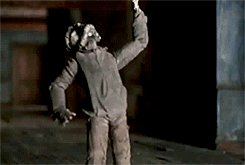



Kids today will never understand the life-altering impact of staying up all night on the weekend. It’s 3 AM and you randomly flip the channel to MTV, only to run across this shit.
#tool#sober#bjork#human behaviour#soundgarden#black hole sun#nin#closer#120 minutes#mtv#90s#scarred for life
21 notes
·
View notes
Text
30 notes
·
View notes
Text

#mental health matters#this one hit me like bricks#free me#free yourself#recovering perfectionist#perfection#perfectionist#perfect#human behaviour#human nature#originality#creativity#jeez i love you guys
30 notes
·
View notes
Text
There's nothing more human than when one of your super convenient tools starts slightly malfunctioning, causing you just a little bit of inconvenience to the point that you're mildly annoyed, but then you just don't do anything to fix it. So then every time you use the super convenient item it's just mildly annoying to do so.
#for example#our ketchup bottle is currently very pressurized#but instead of flipping it over and letting the buildup of gas out#we have just left it flipped cap side down#and every time we go to put ketchup on something#it explodes all over#and then we close the cap and leave it that way for the next person#silly#humans#human behaviour#people#human things#humans are weird#humans are cute
31 notes
·
View notes
Text

Lately I have changed my outlook on the people who have hurt me in the past. As I understand more how generational trauma works , as I start to understand that most anger is actually fear and hurt, as I start to educate myself on human behavior, I now wish them healing instead of karma. Karma will not get rid of their trauma. Healing will assure me that they won’t do to someone else what they did to me.
.
.
#understanding#human behaviour#psychology#karma#healing#soulinkpoetry#poetry#she writes#thoughts#feelings#poets on tumblr#that’s life#mental abuse
188 notes
·
View notes
